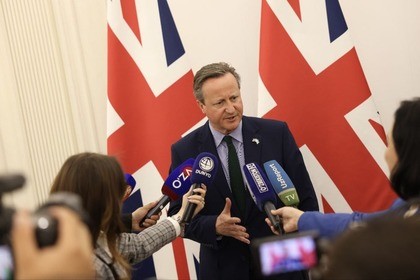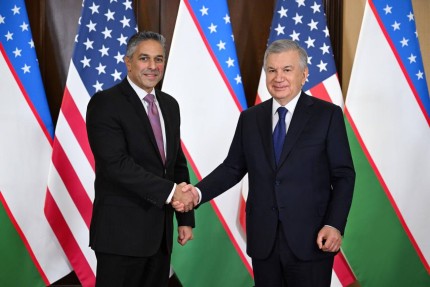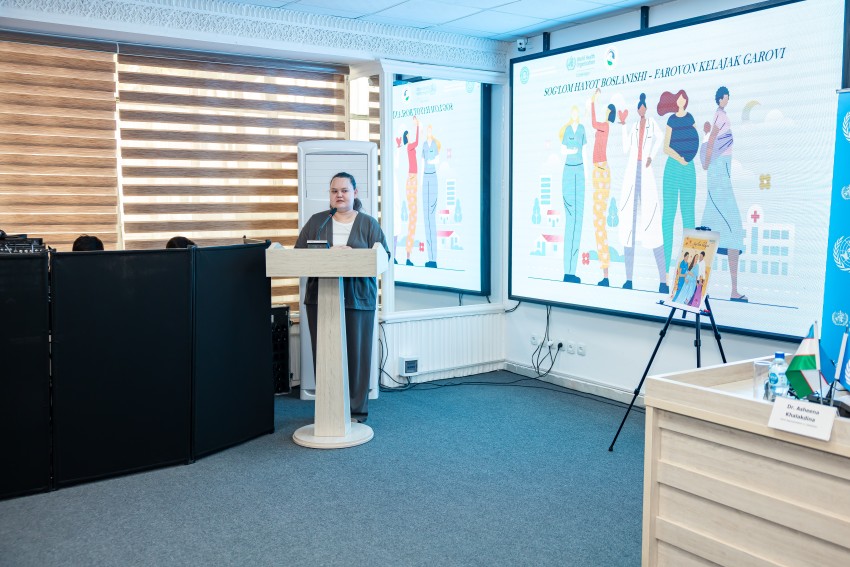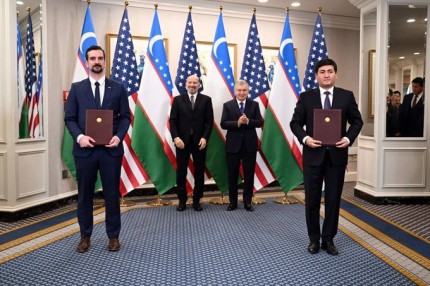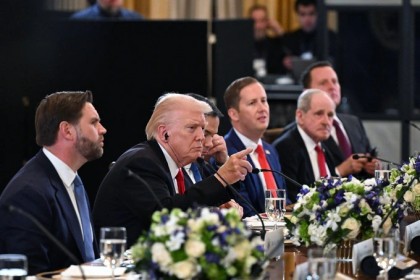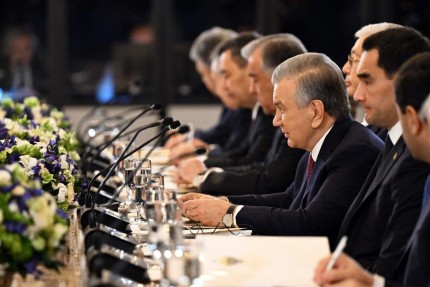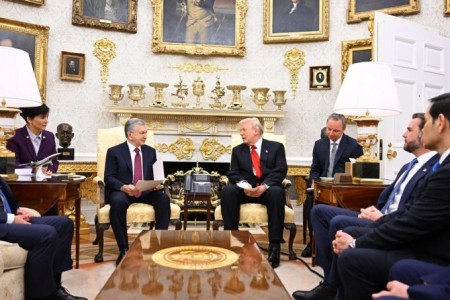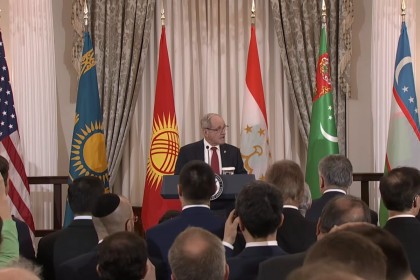On April 23, British Foreign, Commonwealth and Development Secretary Lord David Cameron visited Uzbekistan as part of his visit to the countries of Central Asia and Mongolia. He became the first British Foreign Secretary to visit Uzbekistan in the last 27 years.
These issues were discussed at the negotiations between David Cameron and the Minister of Foreign Affairs of Uzbekistan Bakhtierrm Saidov. Memorandum of Understanding in the regional, international relations and infrastructure, as well as a Joint Declaration on Comprehensive Cooperation, including expanded cooperation in the field of counter-terrorism, defense, climate change and human rights were signed following the talks.
What the inked accords imply
“The Joint Declaration sets out the two countries' vision for building more dynamic ties between the two peoples; boosting trade and investment flows; expanding cooperation in the field of politics, security and defense, and participation in resolving key issues such as climate, clean energy, sustainable socio-economic development, gender equality and decarbonization plans,” the embassy’s press service told Gazeta.uz Great Britain.
The Memorandum of Understanding aims to expand economic and industrial cooperation by supporting the development of sustainable infrastructure projects in Uzbekistan.
It focuses on new high-speed rail projects in Uzbekistan and areas where the UK can provide support, including through the use of UK export finance assistance. The parties will form a joint working group to agree on detailed cooperation plans with key government and business representatives of the two countries.
The proposal to establish a UK-Uzbekistan Joint Economic Commission underscores a shared commitment to expanding bilateral trade and investment ties, the embassy underscored. The Commission will become a new platform for intergovernmental dialogue on economic cooperation and support for British and Uzbek businesses.
The existing Uzbek-British Trade and Industry Council, which held its 27th annual meeting last year, will continue to provide networking opportunities for business representatives from the two countries.
David Cameron has announced a £50 million increase in development funding for Central Asia over the next three years, in addition to the funds the UK provides through core contributions to multilateral organisations.
He announced the launch of a new program on education and English, including doubling funding for Chevening scholarships for Central Asia, a small and medium-sized enterprise development program with a focus on green investments, and a special program to address climate change with a focus on clean energy and water security.
“We are not demanding tha you choose between partners”
“The UK is a time-tested, long-standing and reliable partner of the Republic of Uzbekistan. Our relations are built on mutual respect and the principles of transparency,” said Foreign Minister of Uzbekistan Bakhtiyor Saidov after the negotiations.
He expressed confidence that David Cameron's visit will serve to raise bilateral and multilateral cooperation to a new level.
David Cameron told reporters that Great Britain wants to build partnerships with Uzbekistan and Central Asia and is not asking to choose sides.
“Central Asia is an important region of the world. You have strong regional powers in the region with whom you have partnership ties. “I am here to say that we are not asking you to choose between these partners and a country like the UK,” he stressed.
“You should have a choice if you want to work with us on education, climate change, business or trade. We want to be here to build those partnerships. We give you a choice, and this, I think, is the most important thing,” the minister added.
David Cameron underscored that the UK and Central Asia face similar challenges. “How do we create jobs and make [the country] prosper? How can we ensure that people in our countries have a chance at work and a voice in life? That's what it's all about. And that’s why I’m here today,” the minister emphasized.
David Cameron also emphasized the importance of media freedom: “We know that your president, your country is committed to democracy and media freedom. And that's what we stand for."
He added that “each country had to look at these things differently,” but “democracy is always about discussions and debate.”

